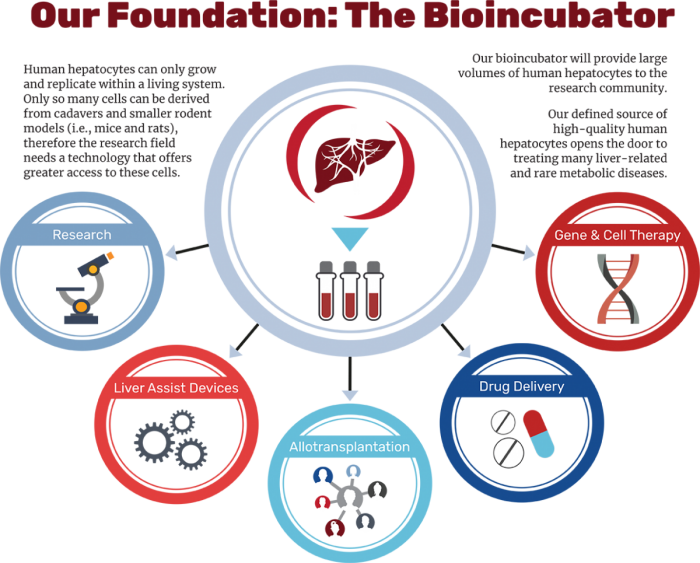

- Home
- Companies
- Cytotheryx, Inc.
- Services
- Cytotheryx - Supporting Liver Research ...
Cytotheryx - Supporting Liver Research Services
At Cytotheryx, we understand that life-saving discovery in liver disease research and medicine requires a multi-faceted approach. The key to enabling this innovation is a reliable foundation. We understand this need and the opportunity to support numerous areas working to advance human health—this is our sole focus.
Our team has developed a revolutionary bioincubator capable of propagating high-quality, consistent primary human hepatocytes, or liver cells. With this technology, the liver research community will gain extended access to the quantity and quality of human liver cells required to advance disease-specific research. Our bioincubator also provides the tools needed to develop new applications for drug delivery, cell and gene therapies, liver assist devices, and even allotransplantation.

A healthy liver has many important functions in the body. However, repeated damage to the liver caused by genetic or environmental factors can create fibrosis (scarring) which can impede the liver’s ability to function properly. When the scarring becomes severe (cirrhosis) it can lead to the liver function deteriorating almost entirely, also known as end-stage liver disease or ESLD. Once someone is in ESLD, the only curative treatment option currently available is transplantation.
Despite the hope that transplantation can offer, only a portion of people on the waitlist will ever receive a liver transplant. Over 2,000 people every year are either too sick to survive the transplantation surgery or die before an acceptable donor is ever found. The number of organ donors each year is drastically outweighed by the number of potential recipients, creating a desperate need for alternate therapies and tools to advance current treatments for liver disease. The greatest need for innovation in these areas is a consistent source of high-quality human hepatocytes. Artificial liver assist devices, gene therapy, new medications and other alternative treatments require hepatocytes for research, proof of concept, and even for functionality.
1 – U.S. Department of Health and Human Services. National Data – Organ Procurement and Transplant Network. (2019). Retrieved 28 October 2019, from https://optn.transplant.hrsa.gov/data/view-data-reports/national-data
